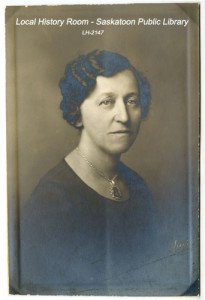On March 8th we celebrate International Women’s Day. It reminds this writer of how important women have been to agriculture on the prairies and the pivotal leadership role they played in establishing modern Canada.
Creating grain farms on the prairies was hard work and for the most successful settlers it was a team effort that relied on women and men working equally hard though not always at the same jobs. Take for example the massive threshing crews whose work to bring in the grain at the harvest is so often highlighted at summer fairs across the prairies at places like the Birch Hills Threshing & Family Fun Day in Saskatchewan or Pioneer Days in Steinbach, Manitoba.
While it was mostly male crews that tossed the bundles into the thresher it was the women who made sure that the crews were fed and as often as not played a key role in organizing the farming operation and doing field and yard work during the rest of year as well.
International Women’s Day is a good day to recognize prairie farm women not only worked hard on the farm but organized and worked equally hard to extend democracy and social and economic justice. It was the Saskatchewan farm women who supported one of the very first attempts at Medicare in Canada.
One of their leaders was Violet McNaughton, who farmed with her husband, near Harris, Saskatchewan. They were both members of their local Grain Growers Association, one of many farm organizations dedicated to securing economic justice for grain growers. This is an organization where women took an equal role before the province of Saskatchewan would give them the vote.
Violet McNaughton, with the support of the Saskatchewan Grain Growers, was one of the women who organized petitions and campaigned for Saskatchewan women to get the right to vote. Some historians contend that McNaughton was such a formidable organizer and intellectual force that in fact it was the Grain Growers Association that had the support of Violet McNaughton!
With the help of the equally formidable Manitoban Frances Beynon, who campaigned for women’s suffrage in her own province, was an anti-war activist, and the women’s editor for the Grain Grower’s Guide paper, McNaughton organized the Women Grain Growers Association which drew its membership from farm women across Saskatchewan. The Saskatchewan Grain Growers gave this organization $500 in start-up money – about $10,000 in today’s money. When it came to supporting women’s equality they put their money where their mouth was.
Together Beynon and McNaughton joined other farm women from across the prairies to support the Famous Five who finally ended the abomination of relegating women to the legal status of horses and other chattels.
Farm women and men often had extremely limited access to health care including doctors and midwives. McNaughton campaigned for accessible medical aid and argued governments should pay for that health care. McNaughton and the Women Grain Growers got both the Saskatchewan Grain Growers and the Saskatchewan Association of Rural Municipalities to pass motions supporting their campaign for medical aid. With this support for their campaign it forced the provincial government to pass legislation that let municipalities enact taxes to cover medical aid costs. Municipally funded nurses, doctors, and hospitals were the beginnings of the foundations of Medicare.
In spite of the fact contraception and birth control was illegal at the time, McNaughton and her supporters, also promoted “family planning.” This contributed to our contemporary, although still controversial in some quarters, understanding that women have the basic human right to control their own reproductive system.
So on International Women’s Day we should remember and applaud Violet McNaughton, Frances Beynon and their fellow farm women who began the campaign – strongly supported by the grain farmers of western Canada – to build the social and economic justice that would ultimately lead to so much that defines Canada today.
You can read previous International Women’s Day posts on this site from 2012, and 2013, and 2014.


